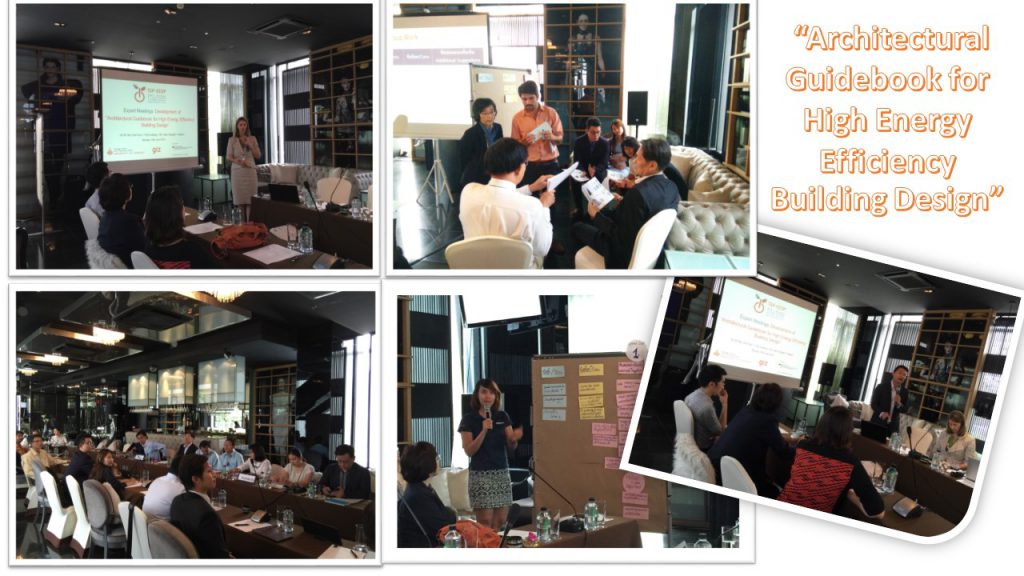One of the seven core activities in the TGP-EEDP project focuses on encouraging the uptake of the Building Energy Code (BEC) in Thailand. A first aim of this activity is to develop a financial incentive model that rewards building energy performances that go beyond the level of the Building Energy Code. This implies developing a set of improved BEC performance levels, or “Building Energy Labels”, that could receive financial remuneration.
Another aim of this activity is to develop a successive timeline to tighten the enforced building energy code levels. This will help the building industry to have certainty about future building standard requirements.
Another approach that can be important for the Building Energy Labels uptake is to encourage architects to design high energy efficient buildings, especially with improved building envelope. Therefore, TGP-EEDP is now working on “An architectural guidebook for high energy efficient buildings design” to inspire and convince the owners and architects to design high energy efficient buildings.
On Monday 15th June 2015 at VIE Hotel, Bangkok Thailand, the TGP-EEDP organized a workshop called – Expert Meetings: Development of “Architectural Guidebook for High Energy Efficiency Building Design” to collect comments to develop a suitable guidebook for High Energy Efficient Buildings.
Objective:
- To decide on a design of the guidebook for High Energy Efficient Buildings
Invited Participants:
- Energy Policy and Planning Office (EPPO), Ministry of Energy
- Department of Alternative Energy Development and Efficiency (DEDE), Ministry of Energy
- The Association of Siamese Architects Under Royal Patronage
- Architects
- Building Material Industries
Agenda and Presentations:
1. Agenda
2. Introduction to TGP-EEDP Project and Building Energy Code activities
3. Architectural Guidebook for High Energy Efficiency Building Design
